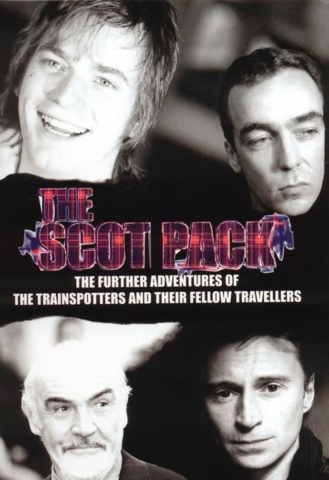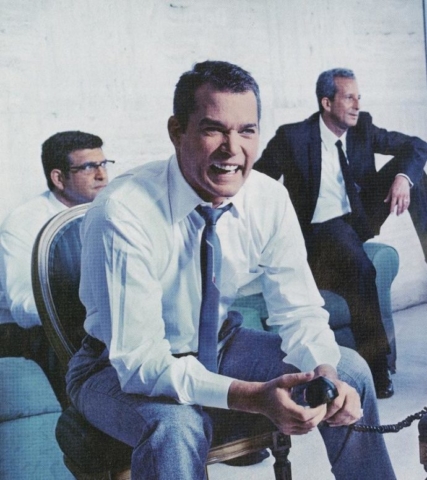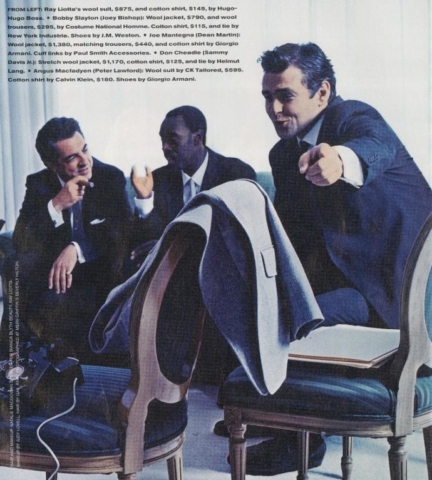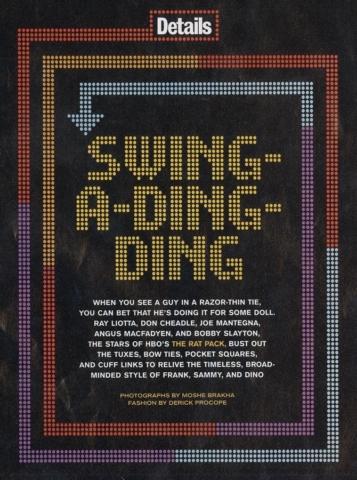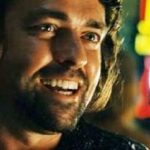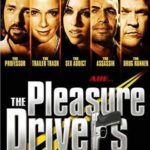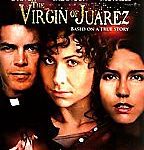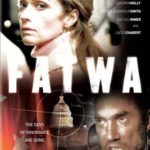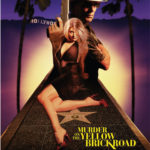Articles
6degrees Meets with Angus Macfadyen
by Nick Walker
6degrees met with the Scottish actor Angus Macfadyen, who discussed his role as Lucius in Julie Taymor’s Shakespearean epic ‘Titus’.
6degrees – Had you played the part before on stage?
Angus Macfadyen – “No.”
6degrees – How were you aware of the role?
A.M. – “I wasn’t, actually. It was one of the plays that I don’t think I’d ever read so I didn’t know much about it.”
6degrees Julie Taymor comes from a theatrical background. Were you aware of that?
A.M. “I was aware of it but I hadn’t seen ‘The Lion King’.”
6degrees Is it different working for a director who comes from a theatrical background?
A.M. “It was in the sense that we rehearsed for three weeks, which you don’t get in films. So that was ‘theatrical.'”
6degrees Were you allowed to improvise in that time?
A.M. “No, we were dealing with Shakespearean language, so we weren’t allowed to improvise!”
6degrees What do you feel of Shakespeare adaptations generally?
A.M. “Usually I don’t have time for them because they take you out of the play and make it about some specific period. The interesting thing about this film is it wasn’t just about the Thirties: it seemed to move through history from Roman times, starting with swords, through to slightly more sophisticated weaponry and then guns.”
6degrees The film was very gory but for me was really about betrayal and vengeance. How do you think it will be perceived?
A.M. “I don’t know. It didn’t go down very well in America because it wasn’t as sentimental as they like, but hopefully it will go down better over here.”
6degrees What was it like working with Anthony Hopkins?
A.M. “Madman! He’s a genius and he’s a madman. It’s always very interesting every day.”
6degrees You’re both Celts, so was there a lot of bonding?
A.M. “We did some Marlon Brando impressions and Richard Burton and that kind of stuff. He’s quite a quiet man and tends to stick to himself.”
6degrees What research did you do for the role?
A.M. “Went out and killed a lot of people! No, just imaginary stuff about the father-son relationship.”
6degrees There are moments of real black comedy. What was the shoot like?
A.M. “It was quite absurd. We were also under a lot of pressure because we didn’t have a lot of money and we didn’t have a lot of time. We did a lot of night shoots and were often caked in mud.”
6degrees Where was it shot?
A.M. “Mostly Rome, and we shot for a couple of weeks in Croatia, in a colosseum there.”
6degrees What other Shakespeare have you done?
A.M. “‘The Tempest’, ‘King Lear’. It was such a long time ago.”
6degrees I heard that you once were a clown. Is that true?
A.M. “No, it’s not true. It’s something I put out there!”
6degrees Have you seen ‘Theatre of Blood’ with Vincent Price? I mention it because there’s a scene at the end where he serves a pie made of poodles, which reminded me of the offering in ‘Titus’.
A.M. “Is there? I must look at that again. Yes, I’ve seen the film and it was directed by Douglas Hickox. I know his daughter, who works in Los Angeles.”
6degrees How did you get into the character of Lucius?
A.M. “It’s mostly one big close-up on Anthony Hopkins so you’re there in the background trying not to crack up or fart!”
6degrees There’s a strong family element in the film between the brothers in the story. How did you achieve that?
A.M. “Is there? Well, we were there for five minutes so I guess we made it work.”
6degrees -What’s next in film for you?
A.M. “I’m about to go and do a film in Berlin called ‘Librium’ [‘Equilibrium’] with Christian Bale and Emily Watson.”
Casting and Start of Principal Photography on ‘Second Skin’
Starring Natasha Henstridge, Angus Macfadyen and Peter Fonda
Darrell Roodt to direct
April 17, 2000‹Toronto/Los Angeles – ALLIANCE ATLANTIS COMMUNICATIONS INC. announces the casting of Natasha Henstridge, Angus Macfadyen and Peter Fonda in the thriller ‘Second Skin’ for Le Monde Entertainment, a division of ALLIANCE ATLANTIS, it was announced today by Patrice Théroux, President of Alliance Atlantis Motion Picture Distribution.
The feature will be directed by Darrell Roodt (‘Sarafina’, ‘Cry The Beloved Country’). David Wicht of Film Afrika (‘Tarzan and The Lost City’) is producing the project and Jeff Morton and David Lancaster (‘Caracara’) are Executive Producers. Principal photography will begin on May 8, 2000 on location in South Africa.
Mr. Théroux stated, “We are delighted to have cast Natasha, Angus and Peter who each bring their unique talent as actors to the project in addition to great international appeal.” ‘Second Skin’ is a thriller about a man, Sam Kaner [Kane] (Macfadyen), with connections to big-time mobster Irv Shuman (Fonda). Kaner [Kane] moves to a small town and opens a bookstore in an attempt leave the mob and start a new life. When Crystal (Henstridge), a beautiful stranger, is hit by a speeding car outside his store and suffers amnesia, Sam tries to help her piece together her former life. As they uncover a series of alarming clues to Crystal’s true identity, Sam is reluctantly drawn back into his own dark past – only to realize that it is his life that may now be at stake.
Henstridge, who most recently starred alongside Bruce Willis, Matthew Perry and Rosanna Arquette in Warner Bros.’ hit comedy, ‘The Whole Nine Yards’, got her first feature break as the provocative alien in ‘Species’. After partnering with Jean-Claude Van Damme in ‘Maximum Risk’, Henstridge starred in the independent hit, ‘Dog Park’. Henstridge previously starred in ‘Caracara’ produced by Alliance Atlantis/Le Monde with Jeff Morton and David Lancaster.
Macfadyen who starred as Robert the Bruce in Mel Gibson’s ‘Braveheart’ most recently appeared in the independent feature ‘Titus’ and portrayed Orson Welles in Tim Robbins’ ‘The Cradle Will Rock’.
Fonda recently starred with Terence Stamp in the critically acclaimed Steven Soderbergh feature, ‘The Limey’. He won the 2000 Golden Globe for Best Actor in a Movie Made for Television for ‘Passion of Ayn Rand’, having previously won a Golden Globe Award in 1998 for Best Actor in a Drama for his performance in ‘Ulee’s Gold’.
Marc Forby, Director of Creative Affairs, Le Monde Entertainment, added, “One of our chief goals at Le Monde Entertainment is to produce the highest quality genre features on the market. Attracting the level of talent in ‘Second Skin’ and an accomplished director such as Darrell Roodt confirms that we are on target.”
“An Actor Who Just Happens to be Scottish” by William Russell, Los Angeles Times
William Russell meets Angus Macfadyen.
THERE are Scottish actors, and actors who happen to be Scots. Bobby, Peter, and Ewan are Scottish actors, and so is Sean, especially Sean. Like Esther Williams, a star when wet, Sean is a star when Scots. But Angus Macfadyen is just an actor who happens also to be a Scot, which is odd, given that he made his name in ‘Braveheart’, Mel Gibson’s take on William Wallace, beloved by both the SNP and right-wing militias in the United States.
Son of a doctor who worked for the World Health Organisation, Macfadyen is not your run-of-the-mill thick actor. After a peripatetic childhood as his father travelled the world – Africa, the Philippines, Singapore – he read French and English at Edinburgh University and then went to the Central School of Speech and Drama in London. He does not, he says, “feel like a Scottish actor as such.” What he does feel like is a nomad. That is the actor’s life, unless one happens to be in something long-running on television and reports to the set with the same people for five years.
As an actor, you never know what is coming next, he says. One day you may think it is all over, the next you are in Russia or China with a whole new family for a couple of months. It is an adventure, and what he enjoys is the unpredictability. He reckons it is his childhood that made him want to become an actor, because although he did read English and French at university the four years were spent “mostly getting drunk and doing theatre.” He did 35 plays during that time.
How much of a nomad is he? He has a flat in LA where he spends maybe three or four months of the year, and keeps his DVD collection of around 100 films and a TV set he uses to watch them on. They are, he says, mostly films from the seventies – the golden era of film-making, he believes – films such as ‘Sunday Bloody Sunday’ or ‘Apocalypse Now’.
He is in London to talk about his latest film to be released here, ‘Titus’, directed by Julie Taymor, the puppeteer and designer who made her name as a director with the Broadway version of Disney’s ‘The Lion King’. It is, Shakespeare not being exactly film box-office, ‘Titus Andronicus’ by another name. The all-star cast is headed by Anthony Hopkins as Titus and Jessica Lang as the luckless Tamara, Queen of the Goths, who gets given her two sons baked in a pie for dinner. Filming was, by all accounts, not a happy experience. It was while making ‘Titus’ that Hopkins staged one of his giving-it-all-up scenes. The word was that Taymor is a control freak. True? Macfadyen, who plays Lucius, the eldest of Titus’s sons, is discretion itself.
“It was an interesting film to work on as three months of shooting turned into five,” he says. “It was very interesting just to watch people like Hopkins work – and go mad. That was when he said he was giving acting up.” Why? “When three months become five, it is like telling a long-distance runner that there is another five miles ahead of him. I don’t think he always likes doing what he does.”
He enjoys acting himself, unlike some actors, notably Hopkins, but admits there are always days when you wake up and wonder what the hell it is all about. But he never ceases to be grateful for the incredible opportunities actors get – like being in Rome for five months, eating pasta and drinking red wine and getting paid for it. “Sometimes you forget that.”
On the other hand, there were times such as when they were filming at the Roman amphitheatre in Pula, standing in for the Coliseum, when it was cold, wet, and they were covered in mud – “a very glamorous lifestyle.”
As for Taymor, he says she had a very powerful vision. “I think she is quite a genie out of the bottle, and sometimes that goes with certain sociopathic tendencies, and if people don’t embrace their genius they get very upset by this inability of an artist to deal with their reality,” he adds. “I know some people did get upset with her, but you have to accept that kind of thing. People were not aware of what they were making. To some it was just another job. They did not have the heart or foresight to see what they were involved in. I think it is a film which, 20 years down the line, people will still be watching.”
He did not, as some of the cast did, come totally fresh to Shakespeare, having played Prospero and Edgar while at drama school. He has read the plays and the sonnets, and is familiar with the language. He says Taymor had cast a lot of Celts in the film – Hopkins, Alan Cumming, and Matthew Rhys among them – so it was not a film just about talking heads, divorced from the emotional context of the story. As a result she had “a whole bunch of very seriously disturbed Celts” to cope with, and did “a damn good job dealing with them all.”
His career has seen him play the likes of Orson Welles, in ‘The Cradle Will Rock’, and Richard Burton and Peter Lawford in two made-for-television films. What was it like playing real people? Fun, he says. As opposed to using one’s imagination, one got given money to buy all their films and all the books about them, and to immerse oneself in the person for a few months. That seems to have been fine with Welles and Burton, less so with Lawford.
One of the reasons he enjoyed making Tim Robbins’s ‘Cradle’, a film about the Welles’s famous production of the banned musical, was that they had three weeks’ rehearsal, and when they came to shoot the scenes in the theatre where the musical was being staged they spent all of the 12-hour day rehearsing to shoot 30 one-minute takes. “We were all there,” he says. “There was no going off to your dressing-room. It was exciting, and also like dying and going to actors’ heaven because I was with so many actors I admired and enjoyed working with.”
Burton was “a gift of a role,” but the script had been written by an American who did not understand how Burton spoke, so he got the chance to re-write most of his own dialogue. “I put the poetry into it wherever I could, wherever it was acceptable,” he says. “But you are talking about something for an American TV network. It was fun for five weeks. When you look back with hindsight you always want to do things differently, but there is no point in torturing yourself. You move on and take those lessons and try to do something interesting.” But getting under Lawford’s skin was not pleasant. “He was not his own man,” he says. “He was famous for being famous, hanging out with legends far bigger and more talented than he was, who ate him for breakfast, lunch and dinner.”
Lawford’s end was terrible, he adds. His kidneys ceased to function and on his deathbed he basically “spat his guts out.” Why was it a bad experience? Because as an actor one took something home, paid a price for playing such characters, and getting beaten up by Ray Liotta was not his idea of a good day at work. “Lawford was someone constantly apologising for his existence,” he adds. “It makes you feel uncomfortable under your skin.”
Since ‘Titus’ he has made a couple of independent films, in one of which he plays a villain all covered in tattoos with short hair, and completed a cameo in ‘Jason and the Argonauts’ as Zeus. “On that it was a question of learning the lines and not disappearing into the clouds while wearing a beard and a wig,” he says. “It was three days’ work mostly done in front of a blue screen.” Difficult? “That is where you start to have to use your imagination. It is the opposite of playing Lawford. What research can you do to play Zeus? You have to play it tongue-in-cheek because it is quite absurd.” As for being a villain, what he had liked about the film ‘Second Skin’ was that the role was, for once, well written.
So where next? Berlin, to make a futuristic thriller with Christian Bale and Emily Watson called ‘Librium’ [‘Equilibrium’], a drug people take to make them have no emotions whatever. “I am playing the equivalent of the President of the United States, except there are no nation states. I am the corporate president of the whole thing, but I am not going to play it like another villain. That is too boring. People who do the things he does do them because they believe they are right. People such as Stalin, Mao, Hitler…Blair.”
The First Film You Saw at a Cinema
Interview by Justina Hart
What was the first film you saw at the cinema?
“‘Isadora’, by Karel Reisz. I am still disturbed when Vanessa Redgrave is strangled as her scarf gets caught in the wheel of a Bugatti.”
What’s your favourite film?
“‘Midnight Cowboy’, a film about brotherhood between two of the strangest characters to have graced the screen.”
When did you last walk out of the cinema and why?
“I walk out often nowadays. Maybe I’m jaded but films aren’t what they used to be. I walked out when Ben Stiller got his penis caught in his zipper in ‘There’s Something About Mary’. That was enough for me.”
What’s the most erotic moment in a movie?
“The feast in ‘Babette’s Feast’.”
What’s the most annoying habit in a cinema?
“Staying because you paid.”
When was the last time you snogged at the cinema?
“Never. Films get my undivided attention. Until I walk.”
Which actor would you most like to be?
“I am what I am.”
Which actress?
“Liv Ullmann.”
What’s your favourite snatch of film dialogue?
“The silence between the Tramp and the blind flower lady in ‘City Lights’, when she recognises his touch and says: ‘It’s you.’ Chaplin smiles and nods with eyes lit up by tears.”
When was the last time you cried in the movies?
“‘There’s Something About Mary’.”
When was the last time you hid under your seat?
“Also ‘There’s Something About Mary’.”
What do you make of Greg Wise’s success, seeing as he was in the same theatre club as you at university?
“Not only Greg Wise, but also Hamish Clark. In fact, the three of us had a stand up routine called ‘The Thunderbunnies’ back in the mid-80s, which we may resume in the near future.”
Being Orson Welles
by Marshall Fine, Los Angeles Times
Actors Liev Schreiber and Angus Macfadyen each take a crack at playing a Hollywood legend.
Every so often, Hollywood spins out the kind of dueling duals that seem more than coincidence: twin asteroid movies one year, a pair of Wyatt Earp pictures another, a matches set of Christopher Columbus films before that.
But not since John Belushi faced off with Joe Cocker have we had anything quite like the dueling portrayals of Orson Welles presented in HBO’s ‘RKO 281’ (with Liev Schrieber playing Welles as he makes ‘Citizen Kane’) and Tim Robbins’ ‘Cradle Will Rock’ (with Angus Macfadyen as Welles in his pre-‘Kane’ New York Theatre period).
Having previously played Richard Burton in ‘Liz: The Elizabeth Taylor Story’ (1995) and Peter Lawford in ‘The Rat Pack’ (1998), Macfadyen was well acquainted with the challenge of creating a character who already is firmly etched in the public’s consciousness. He harbored no trepidation about portraying the most celebrated and debated filmmaker of all time.
“I’m stubborn and stupid so I jumped with both feet,” he says. “The thing about playing people who existed, who were established, is that there is so much research to draw on. I love that search into history.”
Not that Macfadyen is about to start doing his Orson Welles impersonation at parties any time soon.
“You try to avoid doing an impression,” he says. Schreiber concurs, “If you spend too much time doing an impression, it keeps the audience at arm’s distance.”
Schreiber was less sanguine than Macfadyen about the idea of playing Welles; though he had auditioned for the role in ‘Cradle Will Rock’ (losing it to Macfadyen because he looked too old, though Macfadyen is actually older than Schreiber), he initially turned it down when it was offered for ‘RKO 281’.
“He’s one of those characters who’s kind of sacrosanct,” says Schreiber, currently rehearsing ‘Hamlet’ at the Public Theatre in New York. “They’re big shoes to fill. I got nervous because I didn’t want to somehow disrespect the memory of the character.”
Yet, while avoiding caricature, it was important to simulate the Welles voice, so deep and commanding: “The voice he used in film and radio was his, but it was also put on for film and radio,” MadFadyen says: “I found this priceless piece of tape where he is rehearsing ‘Tomorrow and tomorrow and tomorrow,’ and then he gets something wrong and his voice went up into this high, loud, anarchic rant as he berated himself. And it was a key to this quality of his Dionysian personality.”
In trying to create the character of Orson Welles, tyro film director, Schreiber focused on “how isolating it must have been, at the young age of 19, to be one of the most famous young men in America,” he says. “All he knew, all he had to live up to was this mantle of genius – at a great cost in emotional maturity and personal relationships. And all he really had to gauge reactions to what he was doing was the press, which is the most powerful mirroring one gets in one’s life.”
Macfadyen calls Welles a much tougher acting challenge than playing Burton or Lawford “because of the energy level. It was necessary for me to reach that level at all times. And to sustain it through 30 takes.
“With Welles, I found the root was his very powerful confidence, at times even a desire to dominate people. He was a bit of an alchemist. He caused a chemical reaction in the people around him. He caused things to happen.”
Like Macfadyen, Schreiber availed himself of the numerous biographies of Welles, as well as watching ‘Citizen Kane’ several times, sometimes with the express purpose of helping to re- create moments from that film in ‘RKO 281’ (which was the numerical production designation of ‘Citizen Kane’ at RKO pictures). He even looked at Vincent D’Onofrio’s performance in a cameo as Welles in Tim Burton’s ‘Ed Wood’. “For me, that’s just an actor thing – I love to see how other actors do things,” he says. “Some people are shocked that I would go see other ‘Hamlets’ before I played him. But it’s always interesting to see how other actors do a role.”
As a movie character, Welles has turned up before, usually in TV films. The late Paul Shenar portrayed him in 1975’s ‘The Night that Panicked America’, A TV movie that was more about the panic caused my Welles’ ‘War of the Worlds’ radio hoax than about Welles himself. Edward Edwards played him in little more than a walk-on in 1983’s ‘Rita Hayworth: The Love Goddess’. And D’Onofrio slipped in and out of ‘Ed Wood’.
But this is the first time Welles has been the focus of a film, feature or TV, and Robbins, who wrote and directed ‘Cradle Will Rock’, has already heard some grumbles from those who hold Welles’ memory sacred. The muttering about Macfadyen’s dynamic, showy, occasionally boozy interpretation of Welles in ‘Cradle Will Rock’, misses two points, Robbin’s says: that this isn’t a film about Welles, and that Welles was hardly a saint.
“Welles was a provocateur,” Robbins says, “and I think Angus nails that. In nailing it, he’s made some people feel uncomfortable with that Welles. But I thought it was consistent: How does this guy do what he does? How does he have the brass at that age to do what he did?”
For all the research the actors did on his life and all of the film available of his performances, Welles remained a fascinatingly enigmatic figure: “I read five biographies and got five different accounts of the same thing,” Schreiber says, “which in and of itself is very telling.”
“His work was all about studying the heart of darkness in man,” Macfadyen suggests. “So he did a ‘Macbeth’ with voodoo – and told people he believed he was possessed by the devil when he played Faust. In some ways he was making himself the study of his own films.”
And what would they say to him, if the late Welles were still alive?
Cracks Schreiber, “I’d say, ‘Can I be in your next movie?'”
Soul Survivor
by Natasha Stoynoff, Toronto Sun
Angus Macfadyen does battle with his dark side in ‘Warriors Of Virtue’.
HOLLYWOOD – Angus Macfadyen is quietly grappling with the good and evil within.
As Komodo, a sinister yet charming warlord in the action/fantasy flick ‘Warriors Of Virtue’, opening Friday, the twenty-something actor wore pale makeup, an Elvira-dark wig and devilish robes, then took an introspective look in the mirror.
“Suddenly, there’s this strange creature looking back at me, saying, ‘Hello! I’m your shadow,'” cackles the actor, “‘and you haven’t been playing with me lately! Come out to PLAY!'”
Fortunately, battling one’s inner dark side is just the kind of moral struggle Macfadyen specializes in – both professionally and personally.
Making his feature debut in Mel Gibson’s Oscar-winning ‘Braveheart’, the fetching Macfadyen excelled as the conflicted Scottish nobleman who betrays, then befriends, good guy Gibson in his revolt against the British.
More recently in the can is ‘Snide And Prejudice’, in which he plays a mentally ill man who thinks he’s Adolph Hitler.
“It’s a bit like being a drunk,” he says, of his “addiction” to playing characters on the edge.
“Once you’ve been there, you don’t want to go back.”
On the surface, ‘Warriors’ is about a boy (Mario Yedidia) transported to a mystical land of animal-human inhabitants fighting (with martial arts and a dose of Taoism) for survival.
But it really symbolizes “the fight between light and (darkness),” says the philosophical actor.
The good guys – five kangaroo-looking warriors each endowed with a virtue in classic Chinese tradition (benevolence, righteousness, order, wisdom and loyalty) – try to defend their people without actually killing the bad guys.
In the end, young audience members are to learn, “the only demons in this world are in your own heart,” says Macfadyen. “That’s where all the battles must be fought.”
Macfadyen’s own spiritual quest began in Scotland, where, “I was an angry kid who didn’t understand myself or the world,” he says. “Then I began to acquire bits of wisdom here and there.”
Growing up in a family that moved around (dad worked for the World Health Organization), he learned life lessons in locales such as Africa, France, the Philippines and Singapore.
Ideal training for the nomadic lifestyle of an actor, he agrees, since “now, I can’t settle down for very long in one place.”
But still scant preparation for his two-month ‘Warriors’ shoot in Beijing.
“It was a very rough, raw place,” he says.
Even the man-made set of turquoise waterfalls and breezy, surreal forestry – a lavish Garden of Eden – was hell to work with.
“The whirlwind of leaves and dust got in our mouths and noses,” he grimaces, “it was just disgusting. They’d turn on the fans, and I’d think, ‘No more! Let me go home!'” (Some exteriors were shot in North Vancouver.)
Adding to the stress was the sub-zero temperatures of the soundstage, fixed for those actors wearing 40 pounds of unyielding, hot, plastic ‘kangaroo’ costumes.
On days off, Macfadyen took refuge in a Shaolin monastery, observing monks in meditation.
“For them, it’s their direct expression to the universe,” he says, in awe.
“They practise this eight hours a day and they’re not doing it to sell something to somebody. It was incredible to see because it was so pure.”
Fitting research for ‘Warriors’, he notes, since it’s a film “with a soul.”
The love-brainchild of the four Law brothers, all Colorado medics born in Hong Kong who shared a notion to make “a family film with a positive message,” the siblings put up $36 million for their first venture as movie producers.
“At first, everybody was stepping on everybody’s feet just like dancers learning to dance with each other,” says Chris Law, a plastic surgeon. “But we turned from a clumsy dance team to a tag team.”
Along with acclaimed Hong Kong director Ronny Yu (‘The Bride With White Hair’), the team agreed on a common goal for their youthful audience: more morale, less violence.
“The cinema is a medium with great impact,” says Yu. “I feel responsible for the message I send out.”
Using 27 masks, 200 pairs of hands, and 120 pairs of feet, special effects guy Tony Gardner “walked a fine line between what is scary and what is accessible,” he says, while constructing the motorized faces and bodies of the kangaroo warriors.
“We were constantly softening their features,” he says, conscious that they should appear non-threatening to kids.
And using stop-time cinematography, says Yu, gave a “fantasy, surreal quality that made the action less violent, more artistic.”
Added artsy stuff came from Macfadyen, an English/French graduate from the University of Edinburgh, who wrote some poetry (“Life is but a dream … flowing to another dream …) into his prose.
“I wanted to make (Komodo) a poet and a philosopher,” he explains, “exciting and enticing enough to mesmerize this young boy.”
With starring roles in four upcoming Hollywood movies, plus current heartthrob status in Britain (due to several BBC productions that showcased the actor’s saucer-blue eyes), Macfadyen’s own head should be turning.
But while his career is moving at full speed, his personal life retains a Zen-like stillness.
“I paint, I write, I live,” he says, “and I drink a good bottle of wine at the end of the day.”
Now transplanted to L.A., though, the peace never lasts for long.
He’s working on a script which he’ll direct that asks the questions: “What is success and failure?” and, “In order to be an artist, must you be tortured?”
Next month, he begins shooting ‘Death Valley’ [‘Facade’] with Eric Roberts in Las Vegas.
“It’s about an insane Frenchman who tries to rebuild the Versailles palace in the middle of the desert to make it into a gambling casino,” he laughs, adding, “he’s mad.”
Right up Macfadyen’s alley.
A Touch of Evil and Laughter
by Louis B. Hobson, Express Writer
BEVERLY HILLS – Scottish actor Angus Macfadyen has traded his brave heart for an evil soul.
Macfadyen played Robert the Bruce in Mel Gibson’s Oscar-winning epic ‘Braveheart’. In the fantasy epic ‘Warriors of Virtue’, Macfadyen plays the evil emperor Komodo.
The fantasy sequences of ‘Warriors’ were filmed in Beijing. It proved quite a culture shock for Macfadyen.
“The studio was literally falling to pieces and safety was very lax. One day a light fell into one of the man-made lakes. If anyone had been in the water, they would have been electrocuted,” Macfadyen says.
“Whenever something went wrong, the Chinese would light incense and pray.”
Like several of the exotic characters in ‘Warriors’, Komodo flies through the air.
That’s not Macfadyen winging his way from cliff to pillar.
“They couldn’t have paid me enough to do those stunts. Several of the stuntmen broke bones during the fight and flying sequences.”
Macfadyen is proud of the final product because he got to tailor much of his role.
“When I arrived on the project, the villain had no sense of humor. I also wanted him to spout philosophy so he would be amusing to adults.”
Though he had worked on stage and TV in Britain, Macfadyen didn’t have a major film role until ‘Braveheart’.
“I was so fortunate to have Mel as my first feature film director. Now I know how rewarding making a movie can be. Mel is an actor. He knows that tension and nervousness are the enemies of all actors, so he works hard to create a carefree atmosphere.”
Macfadyen recalls that Gibson “was a real madman. He has no reverence for tradition. He messes around with the script so that it works for the actors rather than making them bow under the weight of the script demands.”
One of the first projects Macfadyen got when he moved to Los Angeles was the TV miniseries ‘The Elizabeth Taylor Story’ in which he played Richard Burton.
“In researching my part for Burton, I learned how to drink and not fall over. The man had an incredible capacity for liquor. It was his defence against self-loathing.
“Burton hated himself for being born in this little Welsh mining town. He had been taught to believe he was inferior and he never shook the feeling no matter how famous he became.”
Macfadyen made his professional acting debut six years ago in the BBC film ‘The Lost Language of Cranes’.
In the past year, in addition to ‘Warriors of Virtue’, he has filmed ‘Brylcreem Boys’ with Gabriel Byrne and the independent films ‘Nevada’, ‘Snide and Prejudice’ and ‘Still Breathing’. He is currently filming ‘Death Valley’ [‘Facade’] with Eric Roberts and Chris Penn in Montreal.
Enjoying His Angus Beef
by Natasha Stoynoff, Toronto Sun
For his upcoming role as Orson Welles in the Tim Robbins film, ‘Cradle Will Rock’ – which is in competition here – actor Angus Macfadyen put on 20 pounds the hedonistic way.
“I ate three steaks for lunch instead of one, and two pieces of chocolate cake for dessert, and I didn’t exercise at all,” says the Scottish actor of his two months of force-feeding before filming began in New York last fall.
But then, dear Angus, who played Robert the Bruce in ‘Braveheart’, discovered what most women learn early: “It takes a lot longer to lose it than to gain it,” he confided during a cocktail party at The Majestic Hotel, where he triumphantly turned his back on the fabulous and highly caloric dessert table.
By the time he began shooting his next role in ‘Titus’, with Jessica Lange and Anthony Hopkins, he still hadn’t shed the extra beef. But that’s because they were shooting in Rome. And when in Rome:
“You just can’t lose weight in Italy,” he insists. “The pasta, the bread, the wine.”
The actor has a lot on his plate, professionally speaking, too. With both ‘Titus’ and ‘Cradle’ making appearances at Cannes this year, Macfadyen is bound for fame.
Like most actors, he thinks he’ll never work again.
“I’ve already had a three-month break,” he says. “So after Cannes, I have to go back to L.A. and look for another job.”
“HIS BIGGEST TEMPTATION?”
The California sun. “I have a permanent suntan,” says the formerly pale Scot, “which is fine by me.”
Angus Macfadyen: Delivering Truth Through a Lie
(Articles in this section were kindly donated by ‘Fritters’. Misspelled names corrected throughout by Deejay.)
by Christina Nunez
Angus Macfadyen seems laid-back, on the surface. Although he is playing Orson Welles in Tim Robbins’ ‘The Cradle Will Rock’ and will be seen with Jessica Lange and Anthony Hopkins in ‘Titus’ later this month, his acting ambition is not all-consuming. “I’m not a workaholic,” Macfadyen claims. “I don’t like to work consistently, go from job to job. I like to have a lot of down time, and in that time I do a lot of writing.”
Sometimes he combines the two: The actor says that when a script is bad, he will rewrite all of his scenes. If this sounds troublesome, Macfadyen avers that his help was welcome on 1997’s ‘Warriors of Virtue’. “I had agreed to do this role so long as I was allowed to rewrite it. It was written as a bad James Bond thriller and I rewrote it as a Taoist villain, a character who spouted philosophy. …And it was welcomed, in a way, because it was an improvement on the material.”
Presumably, Macfadyen had less script doctoring to do on his two most recent projects. Though the films were radically different from each other; one a ’30s drama set in New York, the other a Shakespeare adaptation filmed in Rome with ‘Lion King’ musical stage director Julie Taymor; both featured directors who had written their own scripts.
“[For Taymor and Robbins] it was a very personal vision,” says the 36-year-old Scotsman. “Both of them had insisted on a three-week rehearsal period, which was incredibly necessary, considering the films were so technically complicated. So once we got going it was a question of relying on those three weeks in which we’d done a lot of character work, because there wasn’t much time for anything else with all the technical difficulties.”
Macfadyen concedes that the ‘Titus’ shoot was particularly tough, with an intense “heart of darkness of man” theme complicated by the project’s $20 million budget and technical ambitions. Though the Rome shoot stretched from three months into five, the actor says that just meant more time “soaking up the sights and sounds of Rome.”
He also credits Anthony Hopkins for off-camera entertainment. “There are actors, and Hopkins is one of them, who love to joke around. [He’ll] do his impressions of Katharine Hepburn and Burt Lancaster and Peter O’Toole, and you name it. He’ll do them all. Just to try and alleviate a bit of the pressure.”
Playing Orson Welles in ‘Cradle’ was a different kind of challenge. Macfadyen has built a good deal of his career on playing real-life figures: He was Richard Burton in the NBC movie ‘Destiny: The Elizabeth Taylor Story’, Robert the Bruce in ‘Braveheart’, and Peter Lawford in HBO’s ‘The Rat Pack’. But the actor says all of the research can help as well as hurt.
“You can sort of start drowning in it to some extent,” he notes. “…There’s got to be something, you know, like a key, or some little hidden piece of knowledge which you know, which is sort of the secret, out of which everything else sort of emanates.”
That key came a few days before filming, when Macfadyen unearthed a piece of ’40s rehearsal tape revealing Welles’ more playful side. “I was worried about [the role] for awhile, until I found that piece of tape. …At that point I had let go of anything I; I threw it all out the window and had fun. That’s what I heard: a scenery-chewing, intense, huge, generous spirit of Dionysian quantities.”
Macfadyen, who is single and plans to spend his New Year’s Eve on Scotland’s Isle of Skye in “the middle of nowhere,” is slightly more retiring but no less intense. He abandoned ambitions of being a diplomat when he realized “I wasn’t going to be able to go out and have to lie in the real world for a country when I’m sure it would have created some sort of moral dilemmas. So I chose something like acting; in a sense, telling the truth through a lie, through an illusion. The ultimate paradox of life.”
Macfadyen’s next projects are a play called ‘Back When/Back Then’ by Raymond Barry and the role of Zeus in ‘Jason and the Argonauts’, but he hasn’t given up the pen. “I do have my own voice, as it were, and vision of the world,” he says. “I have things I’d like to say about it. So it’ll lead there somewhere down the line, in the next few years.”
“TO LIVE AND STAY ‘PURE’ IN L.A.?”
“Well, being a Westerner, I’m still prone to all the temptations and distractions which are provided,” admits Macfadyen.
SPARTACUS – From Slave to Freedom Fighter
By Faridul Anwar Farinordin
For the crew of the mini-series ‘Spartacus’, translating an epic story into a small-screen version proved to be a challenge of sorts. FARIDUL ANWAR FARINORDIN writes.
MOST of us know the story of Spartacus – at least the film version told in the 1960s big-screen epic adaptation directed by Stanley Kubrick and starring Kirk Douglas.
Based on a book by Howard Fast, the sword-and-sandal epic tells the story of a slave who turns into a rebel leader and causes problems for the Roman Empire. It’s a tale of justice, courage and freedom and therefore, is worth re-telling for the contemporary audience.
True enough, another version of the story was released in the United States recently.
Made for TV by the USA Network Original (who also gave similar themed mini-series including ‘Helen of Troy’ and great programmes ‘4400’ and ‘Monk’), the two-part mini-series will be aired tonight (10 pm) over Star Movies (Astro Channel 42).
Directed by Robert Dornhelm, the teleplay is written by Pulitzer Prize-winning writer Robert Schenkkan based on the same novel by Fast.
The mini-series stars Goran Visjnic (the Croatian-born hunk, last seen in ‘Elektra’), Alan Bates, Angus Macfadyen, Rhona Mitra, Ian McNeice, James Frain, Henry Simmons, Ross Kemp and Ben Cross.
“I love history. With Spartacus, the story is timeless. It continues to affect us on so many different levels,” said the show’s executive producer Adam Shapiro on his decision to revisit the story.
Also the senior vice-president of programming at USA Network, he said the mini-series looks at the story from a different perspective. “We wanted to do something different than the (1960) movie. We have to understand that the writer (Fast) was in jail when he penned the story. There are powerful themes in there that we feel need to be addressed.
“We didn’t want to do a remake. In the mini-series, you will not see some of the scenes that were in the movie. We also have a different ending,” he said.
Shot in Bulgaria, its production crew of 32,000 people included natives of 14 countries including Slovakia, Britain, Hungary, Italy, Austria, Bulgaria, Lithuania, Denmark, Germany, Malta, Morocco, Croatia, Spain and the United States.
“Dornhelm speaks eight languages so he pulled off the task of putting the series together commendably. For me, it was interesting to see people from different cultures working together in the making of this movie. It mirrored what happened in the story – Spartacus led slaves from different parts of the world into freedom.”
Shapiro, a graduate from New York University with a degree in marketing and film/TV, said the main challenge in translating an epic story into a small- screen version was in the technical filming aspect.
“We have a lot of battle scenes and gladiator combat that would look good on wide-screen format for movies, but not for TV. So we avoided sweeping wide shots. Instead, we focused on emotions, which means a lot of close-up shots for the small screen.”
The epic was shot in 65 days. “There was an enormous amount of planning due to the sheer number of people involved, mainly in logistical and co-ordinating aspects – they gave me nightmares which I compared to going to a battle!”
Although comparison with the 1960s movie version is inevitable, Shapiro was not worried. “A lot of people preferred our (mini-series) version of ‘Helen of Troy’ when it was released, compared to the big-budgeted film version, ‘Troy’.
“With ‘Spartacus’, some of the scenes in the classic film look so outdated, even silly at parts. With the latest filmmaking technology for TV, we can now give better treatment to the story and do a better job as compared to a 1960s motion picture.”
At last year’s 2004 Emmy Awards, the mini-series was nominated for Outstanding Sound Editing For A Miniseries, Movie Or A Special.
‘Spartacus’ was the last movie for the renowned English-born actor Bates (as Roman senator ‘Agrippa’), who died in December last year at the age of 69 due to liver cancer. He never got to see the finished product, as the mini-series only premiered in the US in April.
“He was actually in severe pain at the time of the shooting, but he never complained. He always pushed himself and his performances were magical to watch. It was a pleasure to have him in the movie,” Shapiro reminisced.

